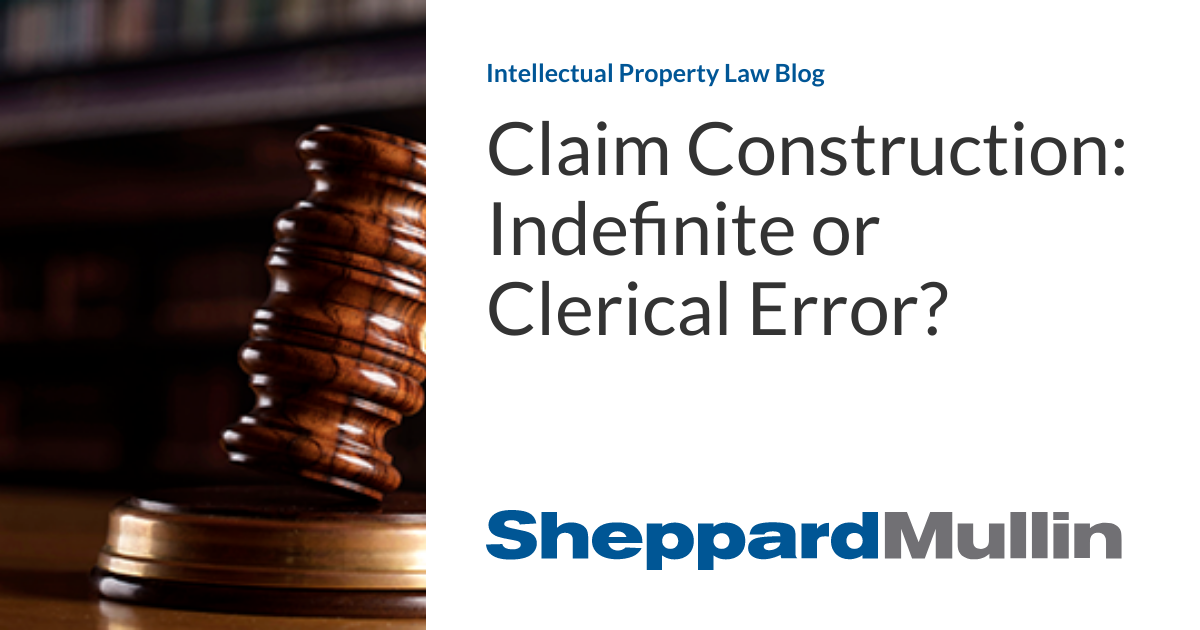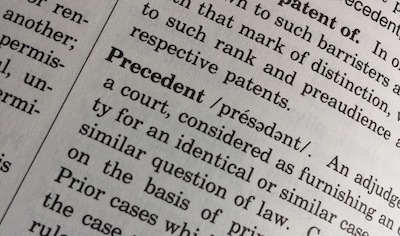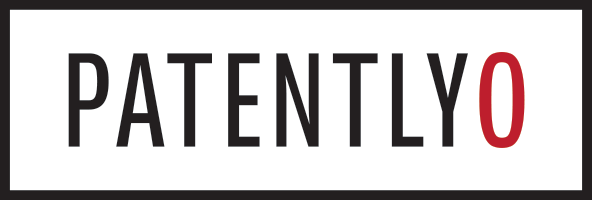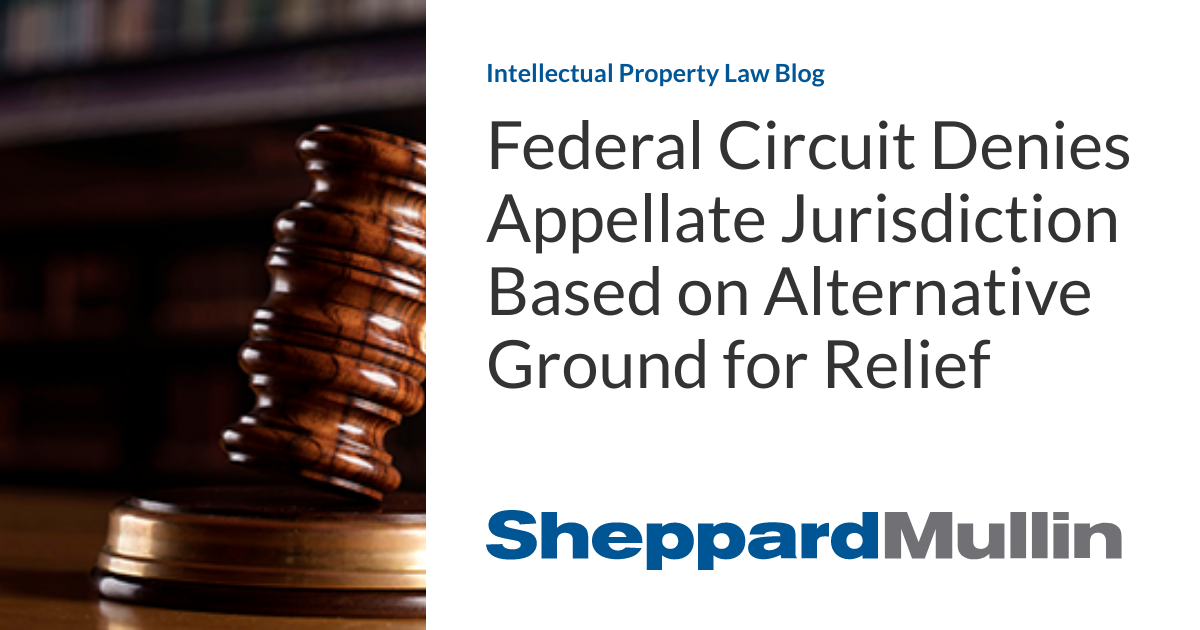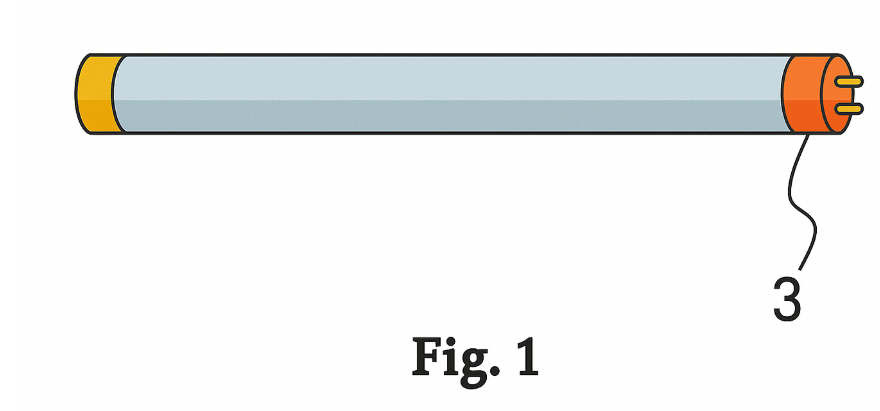#patent law
#patent law
[ follow ]
#patent-law #federal-circuit #intellectual-property #uspto #claim-construction #inter-partes-review #ptab
#uspto
fromIPWatchdog.com | Patents & Intellectual Property Law
3 months ago
Intellectual property law
Other Barks & Bites for Friday, September 19: John Squires Confirmed as USPTO Director; Divided Fifth Circuit Affirms Injunction on Noncompete Clauses; EPO Reports Threefold Increase in Digital Agriculture Tech Since 2000
fromPatently-O
1 month agoSmartrend and the Stretching of Markman: When Specification Parsing Becomes a Question of Law
Smartrend Manufacturing Group (SMG), Inc. v. Opti-Luxx Inc., No. 2024-1616 (Fed. Cir. Nov. 13, 2025). Writing for a unanimous panel, Judge Dyk reversed a jury verdict finding that Opti-Luxx's illuminated school bus sign infringed SMG's U.S. Patent No. 11,348,491 under the doctrine of equivalents. The appellate court held that no reasonable jury could find the accused product's frame performed the same function as that claimed.
Intellectual property law
fromIPWatchdog.com | Patents & Intellectual Property Law
1 month agoCAFC Overturns $39 Million Jury Verdict, Finds Allergan Hair Loss Patent Invalid for Lack of Written Description
The U.S. Court of Appeals for the Federal Circuit (CAFC) on Tuesday issued a precedential decision in Duke University v. Sandoz Inc., reversing a judgment from the U.S. District Court for the District of Colorado and finding claim 30 of U.S. Patent No. 9,579,270 invalid for lacking an adequate written description. The ruling overturns a $39 million jury verdict finding that Sandoz Inc. infringed the patent owned by Duke University and Allergan Sales, LLC, which covers the eyelash growth drug, LATISSE.
Intellectual property law
fromIPWatchdog.com | Patents & Intellectual Property Law
1 month agoThe Supreme Court Should Clarify in Lynk Labs How to Apply Loper Bright
For the past five years, I have taught Legislation & Regulation at Oklahoma City University School of Law-a course at the crossroads of administrative law, statutory interpretation, and the legislative process. Each semester, my students and I return to a central inquiry: when, if ever, should courts defer to agency interpretations, and when must judges exercise their own independent judgment? That question has taken on new urgency in the wake of the Supreme Court's recent restructuring of administrative law.
Law
Intellectual property law
fromPatently-O
2 months ago2025 Economics Nobel: What the Industrial Revolution Teaches About Patent Policy
Sustained economic growth from the Industrial Revolution sprang from accumulation and wide dissemination of "useful knowledge," not primarily from patent-based incentives.
Intellectual property law
fromPatently-O
3 months agoCox v. Sony and the Future of Patent Contributory Liability: How a Copyright Case Could Reshape Patent Law
Supreme Court review of Cox v. Sony will decide whether ISP knowledge plus continued service creates contributory infringement and could reshape patent liability doctrines.
Intellectual property law
fromPatently-O
3 months agoLove Letters Gone Wrong: Federal Circuit's First AIA Derivation Appeal Hinges on Valentine's Day Emails
Derivation proceedings remain narrow, rare exceptions to first-to-file; AIA requires proof of derivation and prior conception but abandons first-to-invent inquiries.
Intellectual property law
fromIPWatchdog.com | Patents & Intellectual Property Law
4 months agoEPO Enlarged Board of Appeal Brings On Sale Bar Doctrine Closer to the United States'
EPO decision G 1/23 broadens the definition of prior art affecting novelty and inventive step evaluations in European patent law.
fromIPWatchdog.com | Patents & Intellectual Property Law
4 months agoSnap, Meta and X Defeat Xerox's Appeal of PTAB Unpatentability Ruling at CAFC
"If Xerox wanted its more limited construction, it should have written the claims as it did in the substitute claim," said the CAFC.
Intellectual property law
fromPatently-O
5 months agoFungi, Bacteria and the U.S. Plant Patent Act
The Plant Patent Act of 1930 allows for the patenting of newly discovered and asexually reproduced plants, including cultivated sports, mutants, hybrids, and seedlings. It, however, excludes tuber propagated plants and those found in their natural state.
Science
fromIPWatchdog.com | Patents & Intellectual Property Law
5 months agoCAFC Says Prosecution History Disclaimer Applies to Design Patents, Too
"We see no reason to distinguish between disclaimer by amendment and disclaimer by argument and conclude that a patentee may surrender claim scope of a design patent by its representations to the Patent Office during prosecution."
Intellectual property law
fromIPWatchdog.com | Patents & Intellectual Property Law
5 months agoShould We Fear Gen AI? Promises, Pitfalls and the Path Forward
Wen Xie emphasizes the inevitability of AI's presence in every profession and technology, asserting that resistance is futile in patent drafting and prosecution.
Artificial intelligence
Intellectual property law
fromIPWatchdog.com | Patents & Intellectual Property Law
5 months agoOther Barks & Bites for Friday, July 11: EGC Affirms Annulment of Rubik's Cube Marks; Sysco Trade Secret Case Dismissal Affirmed by Fourth Circuit; and AG Szpunar Finds EU Member States Can Offer IP Protections to News Publishers
EU member states can enact extra protections for news publishers on online platforms without undermining freedom of contract.
fromIPWatchdog.com | Patents & Intellectual Property Law
5 months agoCAFC Upholds Win for Janssen on Patent for Antipsychotic Med Dosing Regimen
The U.S. Court of Appeals for the Federal Circuit affirmed that Teva Pharmaceuticals did not prove the claims of Janssen Pharmaceuticals' patent for antipsychotic dosing regimens invalid for obviousness.
Law
[ Load more ]
